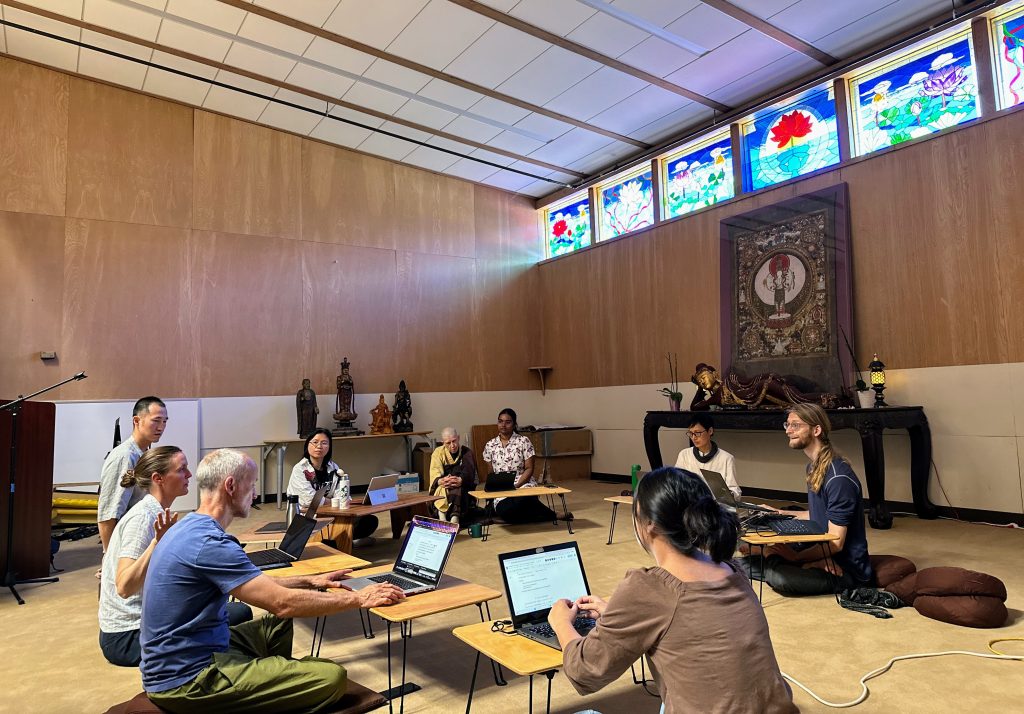Program Description
Graduate Certificate in Buddhist Translation
The Graduate Certificate in Buddhist Translation is an integrated two-semester program that combines translation of Buddhist texts from Chinese into English with study, practice, and service in a monastic setting. It offers a range of subjects and skills: translation theory and methodology, cultural and historical contextualization, and practical translation experience. It provides a theoretical grounding along with a wealth of hands-on translation experience. Furthermore, the discussion and group translation work essential to the pedagogy encourage the development of interpersonal and collaborative skills and attitudes and a maturation of the individual valuable in almost any career path and workplace setting.
This maturation of the individual is the primary aim of the program, rather than the development of skills or knowledge per se. In this sense, the IITBT program differs from other translation programs in focusing not on technical expertise but human depth and social and ethical sensibility. Skills and knowledge are valuable and beneficial tools in the hands of someone with the maturity to wield them responsibly. The certificate program aims to help develop such persons by the path of translation, which exposes students to group work, close and sustained study of primary texts, a multitude of cultures and systems of thought and expression, and self-cultivation in the grand traditions of collective human wisdom.
The program will introduce students to the procedures of the Four Committees as established by Venerable Master Hsuan Hua: (1) primary translation (direct translation from source to target language), (2) revision (bilingual review for accuracy and coherency), (3) editing and polishing (creating a smooth and readable text in the target language), and (4) certification (verifying that the translation is consistent with the Buddha’s teachings).

Program Outcomes and Goals
Program Learning Outcomes
1. Exercise ethical sensibility.
2. Articulate insights gained from major Buddhist methods and practices, close reading, and translation of texts and their implications for the personal, social, and natural worlds.
3. Create clear, accurate, nuanced translations adapted to various audiences.
Program Goals

The Graduate Certificate in Buddhist Translation will enable students to:
- Deepen their understanding of Buddhism through the practice of translation.
- Use key resources such as dictionaries, the electronic Tripitaka, and online databases.
- Develop skills in one or more of the various aspects of the translation process: primary translation, revision, editing and polishing.
- Have first-hand experience with various forms of spiritual practices.
- Acquire experience in both individual and team-based translation and decision-making.
Campus Life & Requirements
Students are not required to live on campus. Students living in dormitories should abide by the rules outlined in the “Rules of Residence” described on page 68 of University Catalog.
Students are expected to follow the DRBU Code of Conduct and the Five Precepts (not killing, not stealing, no inappropriate sexual behavior, no lying, and no intoxicants or illegal substances) on campus and conduct themselves in an appropriate manner in the surrounding communities. Details outlined in the “Student Code of Conduct” on page 67 of the University Catalog will also apply.
Students are eligible for all library services and all activities organized by Office of Campus Life.